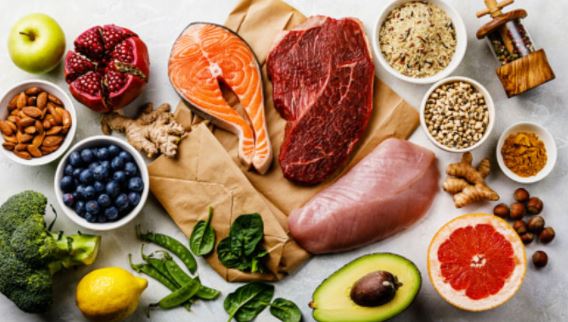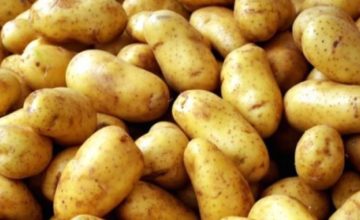
A nutrient is anything that provides nourishment essential for growth and the maintenance of life. This encompasses micronutrients and macronutrients including fatty acids and amino acids.
Many nutrients are good for us, but there are a few that we need to be particularly mindful to incorporate into our diets.
Here are the 6 essential nutrients your body needs:
1. Water
Keeping hydrated is really important. Water is absolutely essential for survival, especially as it makes up to 60 per cent of the human adult body. A few days without water can lead to serious illness and even death.
Our body relies on water. It is critical for waste removal and temperature regulation, and is an essential element of every cell.
2. Omega-3 fatty acids
It’s been found that omega-3 fatty acids optimise brain health and may aid heart function. Unlike other fatty acids, your body can’t create omega-3, so it’s crucial to have sources of it in your diet.
Salmon, mackerel and sardines contain active omega-3 fatty acids, which don’t require much energy for the body to use.
Plant based sources include chia seeds, flax, and walnuts. These foods contain an inactive form of omega-3 that your body has to convert before it can use, and only in small amounts. If you’re on a restrictive diet, incorporate fish oil or algae based supplements.
3. Fats
Fat is an essential nutrient that boosts absorption of vitamins and helps protect organs.
Some types of fats are undoubtedly bad. Trans fats, found in processed and baked foods, increase the risk of heart disease and should be eaten very rarely, if ever.
Unsaturated fats, found in natural sources, actually protect the heart and aid the prevention of heart disease. These good fats can be found in nuts, avocados and salmon.
4. Carbohydrates
Carbohydrate or carbs are essential for proper body function. Carbs are broken down into glucose, which is your brain and body’s main fuel.
Carbs also ensure your body is not breaking down proteins to gain energy, preventing loss of muscle mass.
Complex carbohydrates take longer to break down and keep you fuller for longer, meaning you cut down on unhealthy snacking. Whole grains, vegetables, and fruits are all examples of healthy complex carbohydrates.
5. Mineral
Minerals are another essential micronutrient, with each essential mineral fulfilling a different role. The essential minerals are includes sodium, iron, potassium, calcium, magnesium, zinc, and phosphorus.
Calcium is essential for bone health, muscle and nerve function, and circulation. 99 per cent of the body’s calcium is found in the bones and teeth. Calcium is found in dairy, leafy greens and fish such as sardines and salmon.
Sodium keeps nerves and muscles working correctly. It can be found naturally in nuts, vegetables, meats and legumes, but intake should be limited to around one teaspoon of salt. Processed, frozen, and canned foods with high sodium should be avoided.
6. Vitamins
A vitamin is an organic compound and an essential micronutrient that the body needs in small amounts. The essential vitamins includes vitamin A, vitamin C, vitamin D, vitamin E and B vitamins.
Vitamin A is vital for skin and eye health, Vitamin C for bone and muscle structure and immune support, and Vitamin D for bone growth and cardiovascular and nervous health.
Vitamin D is particularly critical for bone and immune health, so it’s a must have.




